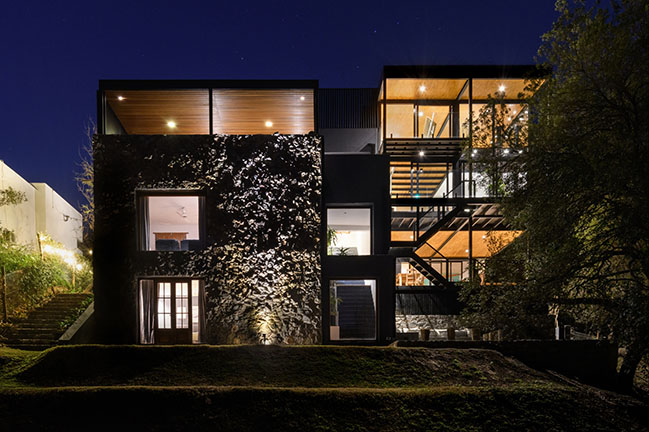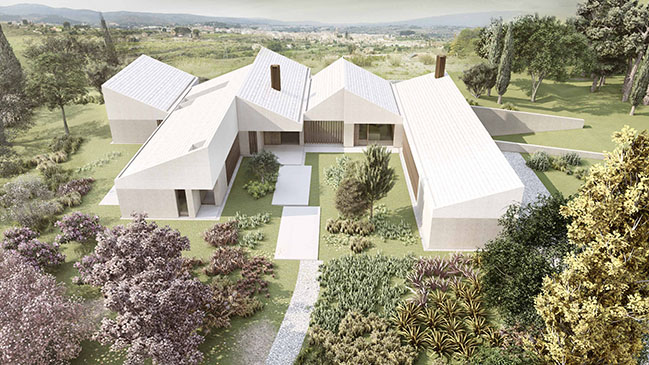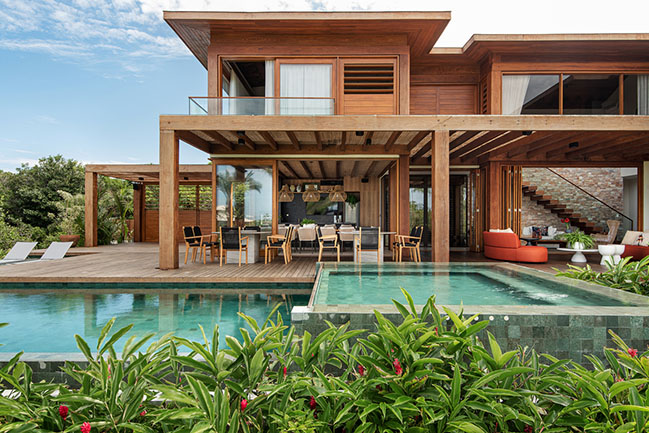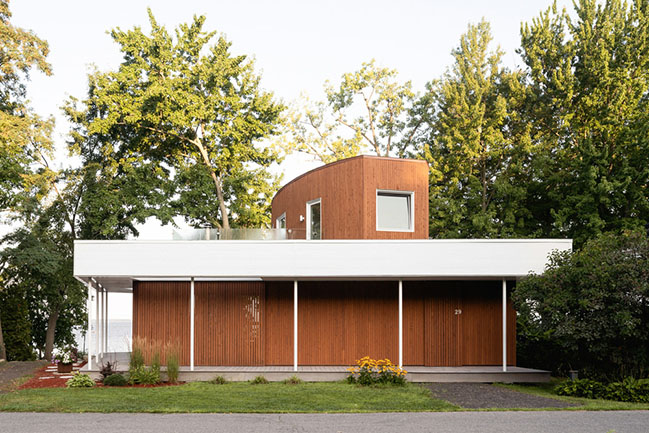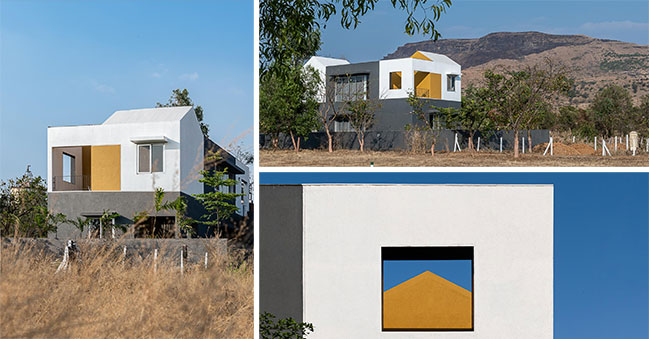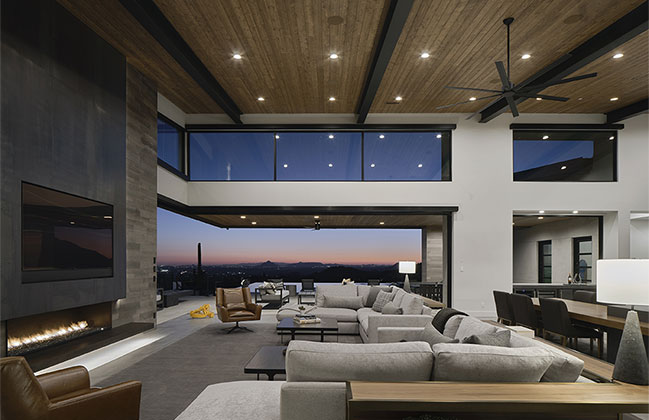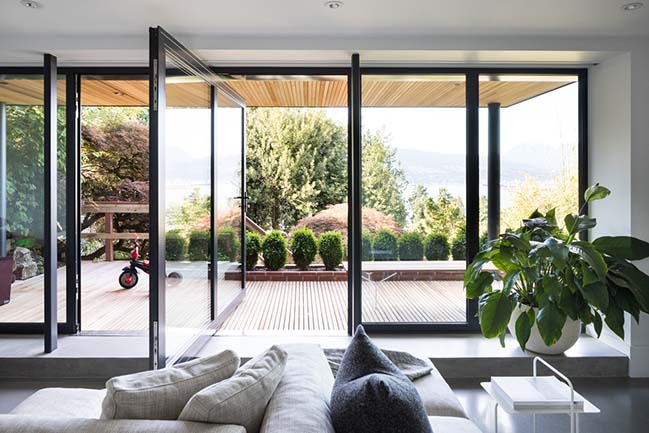12 / 02
2021
The house is conceived as a concrete and stone promontory emerging from the hill, a wall-divided house, that emerges from the organization and repetition of volumes of identical dimensions on floor, 5 x 5 metres...
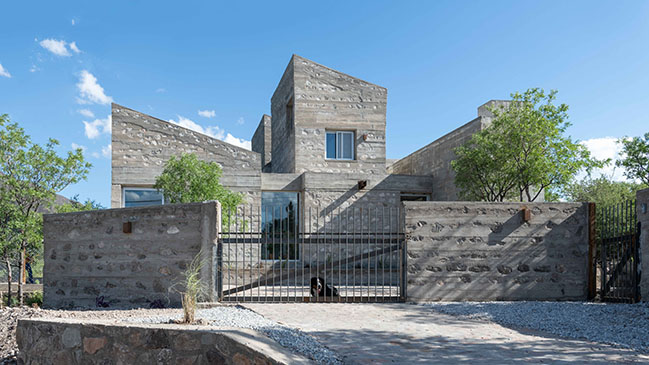
> BRBR House by DAR Estudio Integral de Arquitectura
> The Stables Las Caballerizas by Carolina Vago Arquitectura
From the architect: All architecture carries implicitly its vocation of ruin, and such condition is the final form with which architecture enters in communion with nature and returns to it. From this potential fate, we were interested in the physical expression of the unfinished, what time and inclemency transform, the ways in which the work is gradually taken and constituted by the landscape, slowly dissolving its singularity in the whole.
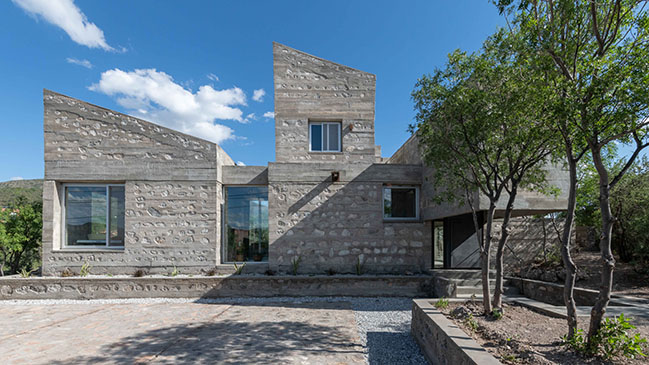
The house is conceived as a concrete and stone promontory emerging from the hill, a wall-divided house, that emerges from the organization and repetition of volumes of identical dimensions on floor, 5 x 5 metres, with variable heights and sloping roofs as prescribed by the edification code, articulated by strategic voids, patios, passages and interstices, which on the outside give place and preserve the species from the local forest; Red Quebracho, Celtis Tala, Vachellia caven, Bacchari, among others, whereas in the inside they become the “streets” of circulation of this stone warp, as a ‘medieval mountain village’. Wall boxes that delimit empty places, which are as important as full ones, let the surrounding landscape filter and the exterior space is tempered for its use, protecting it from prevailing winds and oriented according to solar rotation.
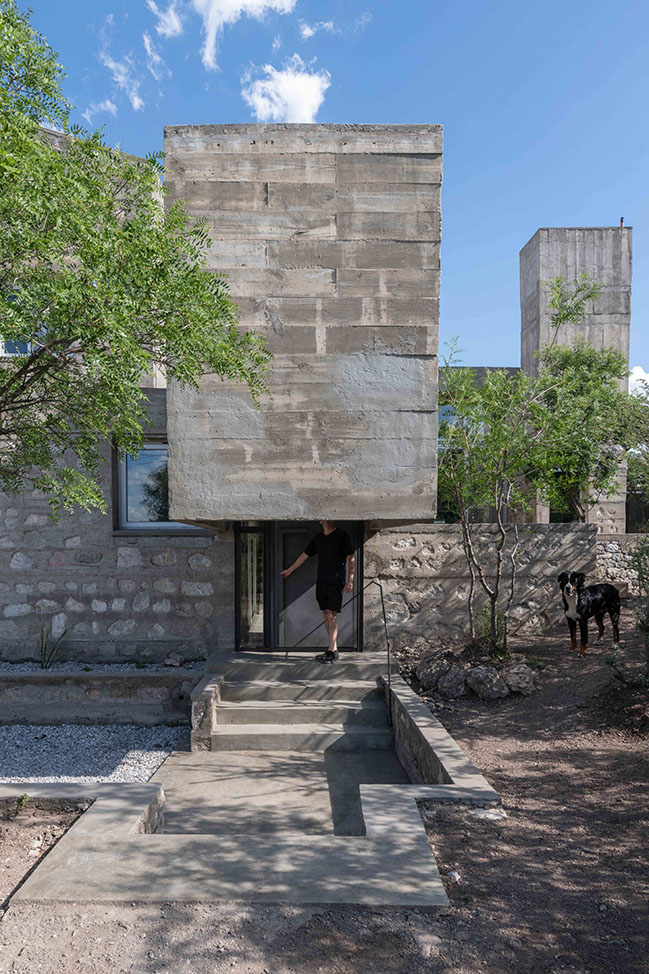
The main circulation links the exterior with the heart of the house; it is materialized as a purely horizontal concrete volume, which due to the slope of the land, in the access sector is detached from the ground at 2.20 metres high, acquiring the physiognomy of a box beam, forming a small atrium whose focal point is a zenithal window that frames the sky, so that every time someone enters or leaves the house executes involuntarily the archaic gesture of looking at the firmament, the vertical infinity that gives us back the precise scale of our becoming in relation to the universe.
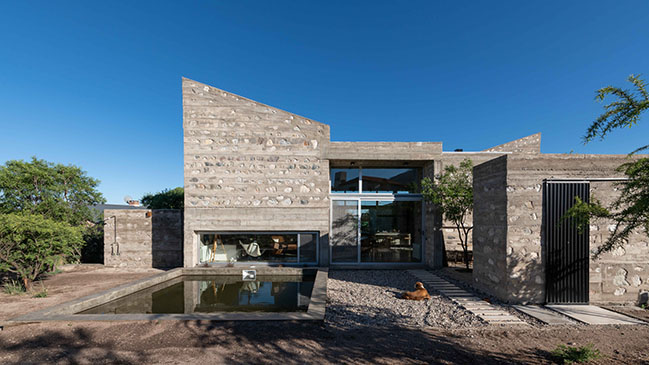
This circulation bridges the unevenness of the land and articulates all the spaces of the house; it is the place where people invariably walk through at all times. For this reason, it takes a central role in the project, giving continuity to the exterior landscape from inside the house through perforations that lead to internal or external gardens, creating a transition atmosphere between the outside and the domestic environments. A ‘main passage’ that links, orders and leads to the rest of rooms, horizontally and vertically since it is connected to the main staircase in its intermediate rest; a typological determination that leaves both the upstairs rooms and the ground floor rooms with their own services, always equidistant and at a half level from the main meeting space, which is set around the kitchen and a fireplace.

The kitchen is the centre of gravity of the life in this house. The client’s request is expressed in the typological configuration of the residence, being the arrival and stay space where the interior communicates openly and in different directions with the exterior space and the power of its landscape. It constitutes a diaphanous place of average height and a half, presided by a countertop/bar that comes off the ground like a sculpture or a culinary altar which governs during family time, meetings with friends and their experiences, interspersed with gastronomic rites.

The material condition defines and qualifies this house, and it is through it the technique used throughout the whole is expressed. The cyclopean formwork wall technique is an artisanal procedure executed from the experience in working with stone of local workers, that after a casting process it starts printing the texture of the wood that encases the mortar and compresses the stone. It is also built through "error", and the alignment variations that appear in the wall as the structure rises, the random distribution of the stones and their mineral colour depending on the origin of the quarry where they are extracted, give a physical character, a tactile stimulus to the limits of space. The walls function as texts, a tectonic calligraphy arranged by marks and signs, which will offer infinite variations when exposed to the changing conditions of light and its incidence according to the seasons of the year.
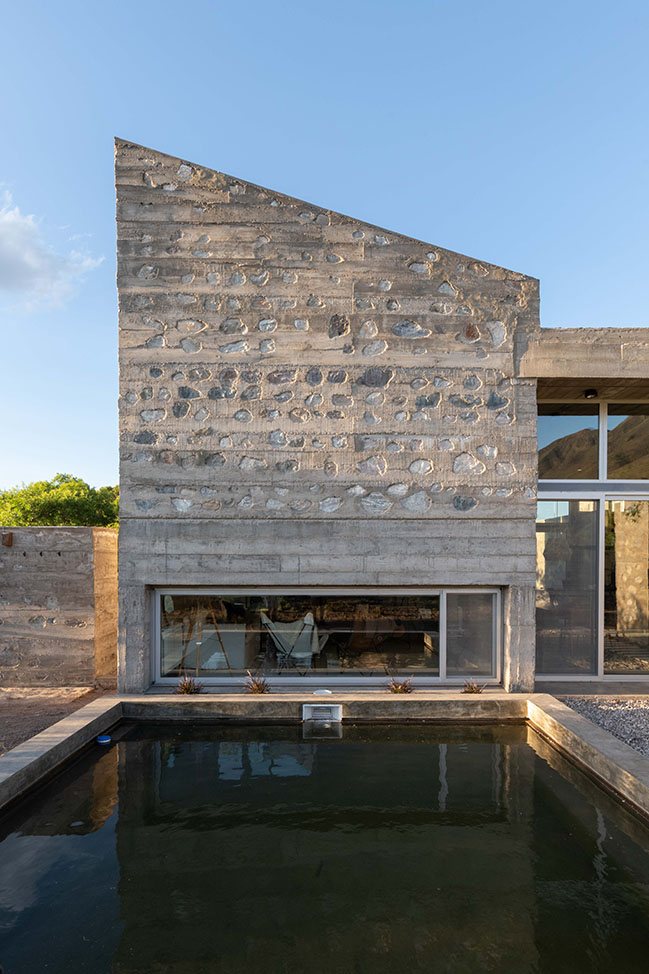
The stark material is exposed to the weather and time is the material procedure for this house to enter into communion with the surrounding landscape.
Architect: Nanzer+Vitas
Location: Córdoba, Argentina
Year: 2020
Area: 290 sqm
Architect in Charge: Cristián Nanzer, Carolina Vitas
Interior Design: María Laura Herrera
Photography: Gonzalo Viramonte
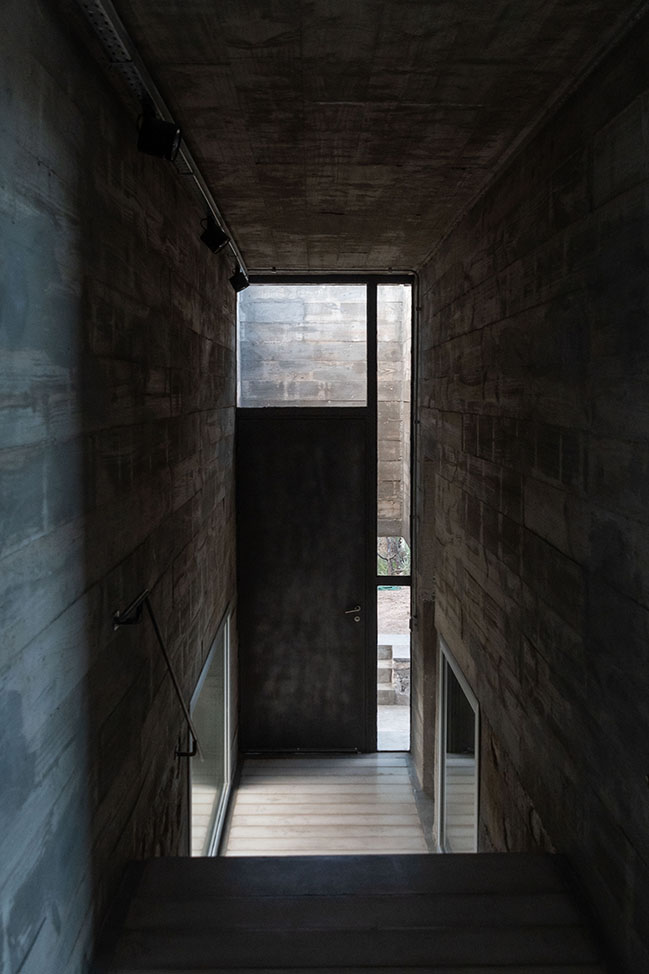
YOU MAY ALSO LIKE: Aire House by ariasrecalde taller de arquitectura
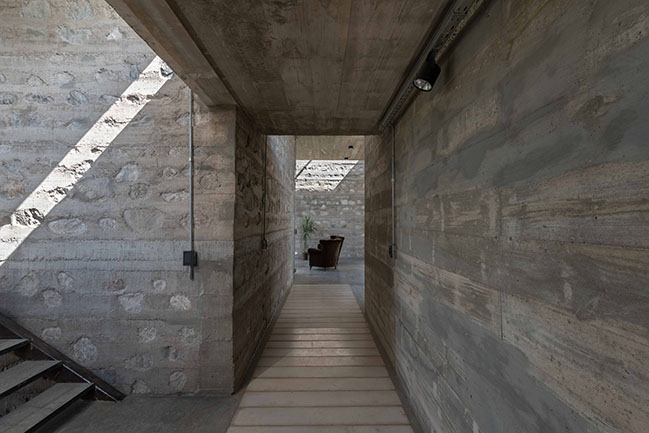
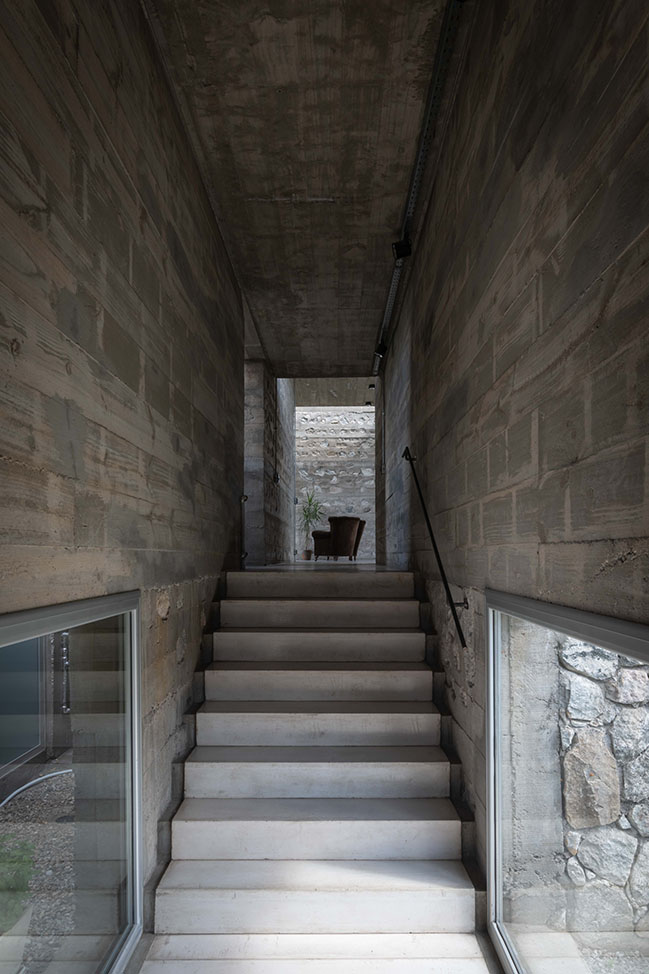
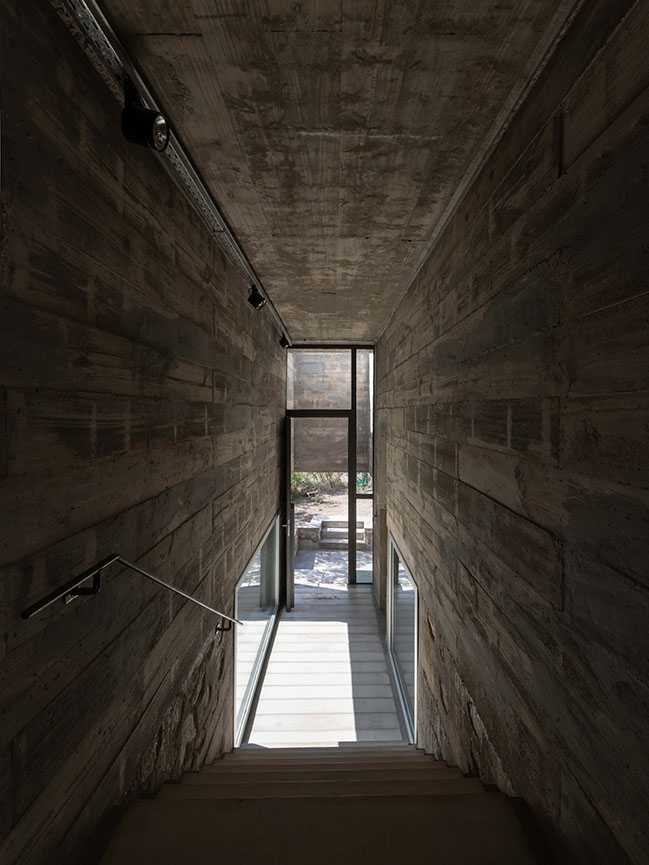

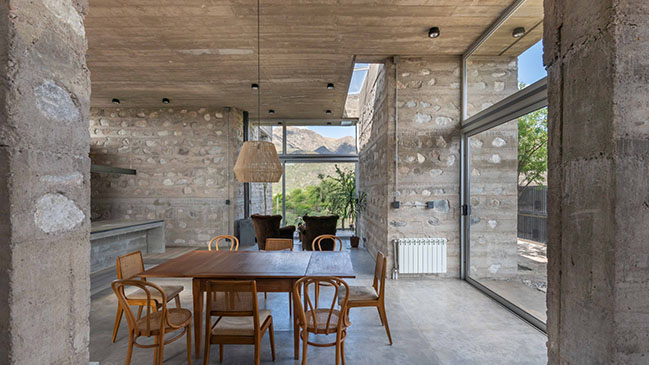
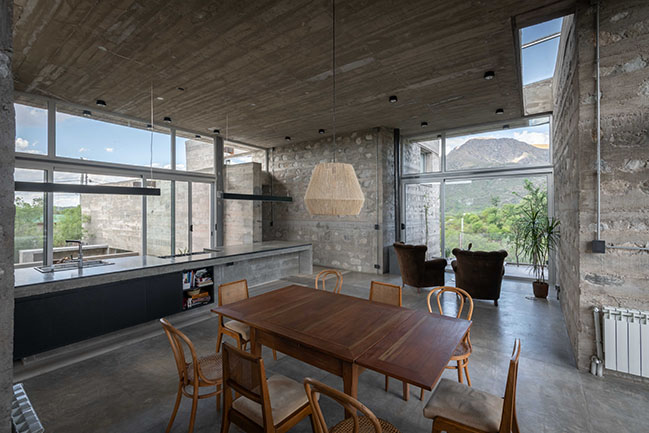
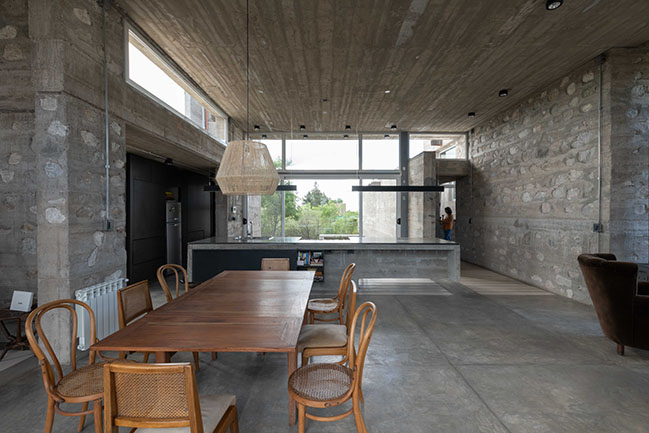
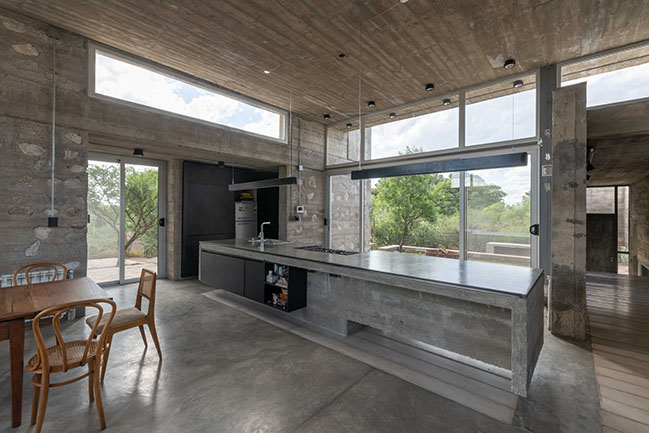
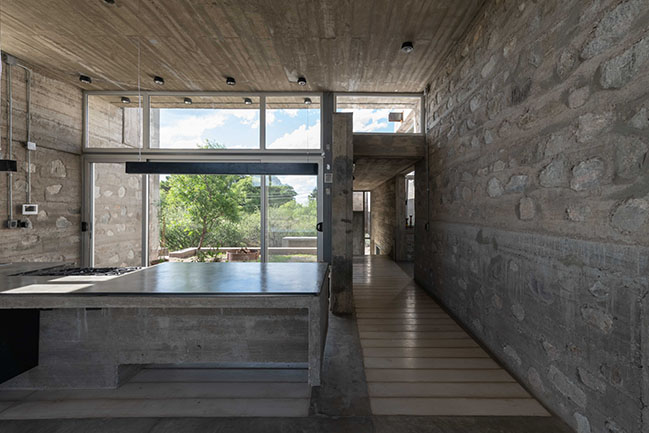
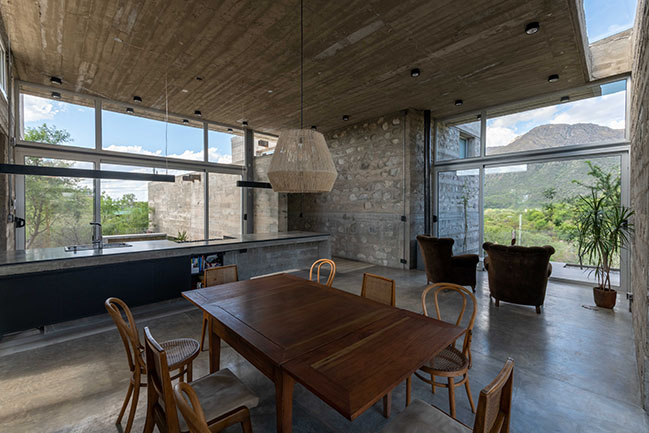
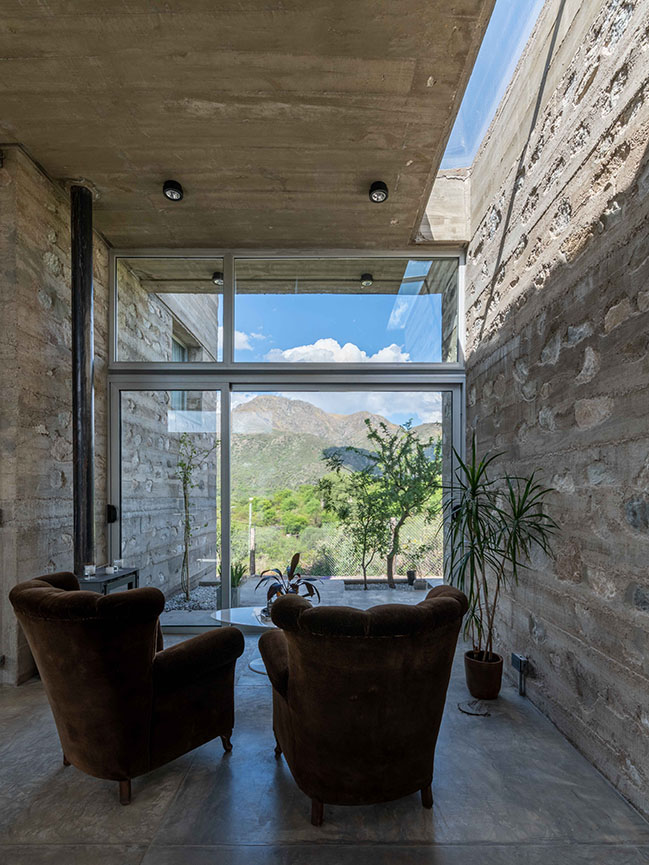
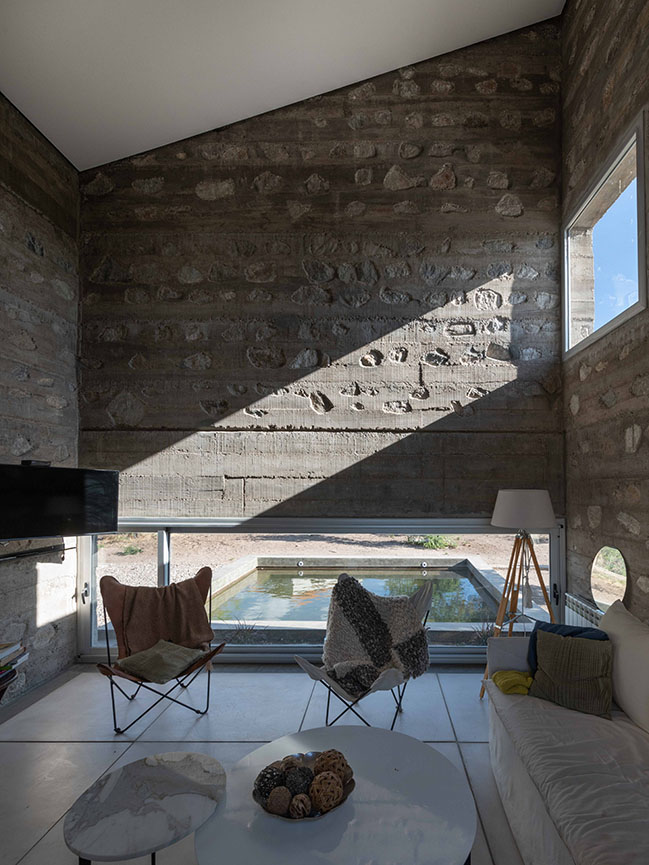
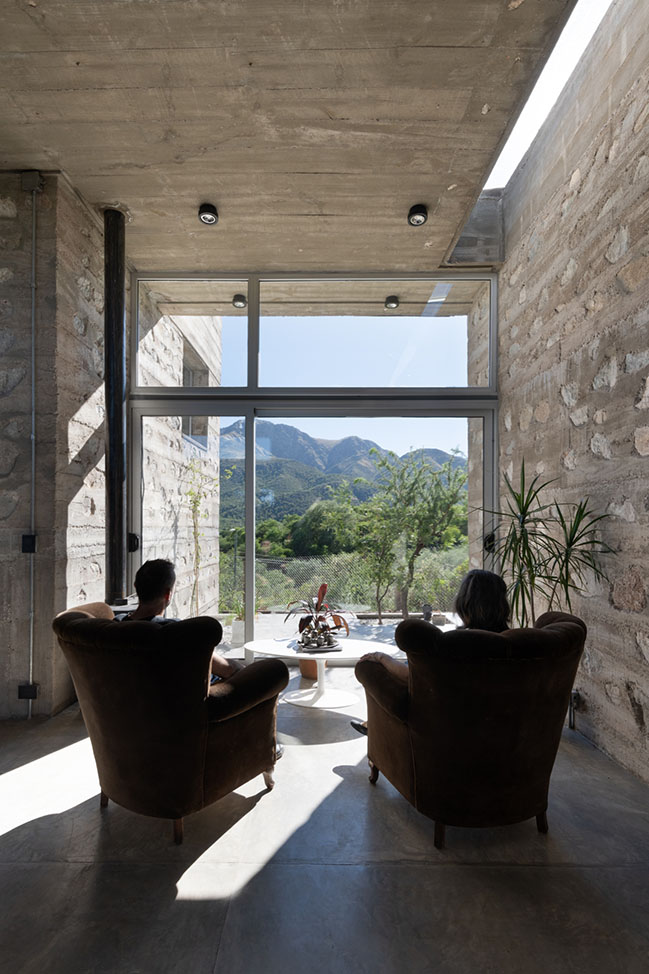
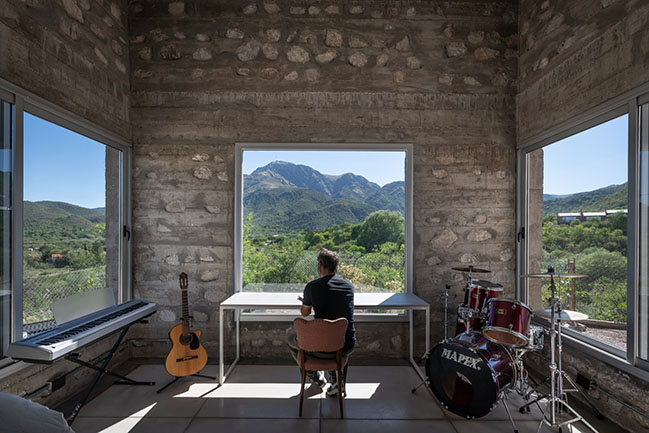
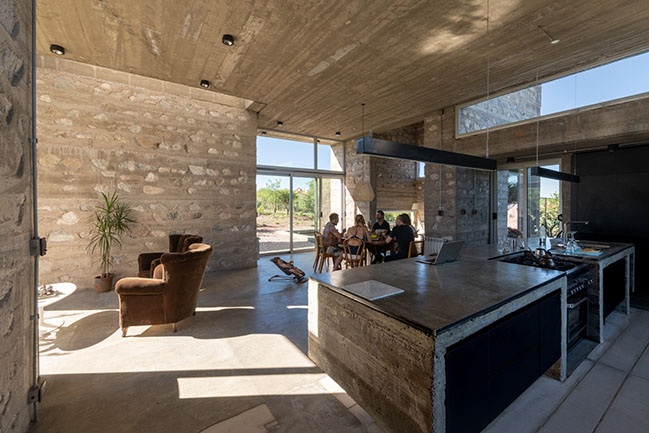
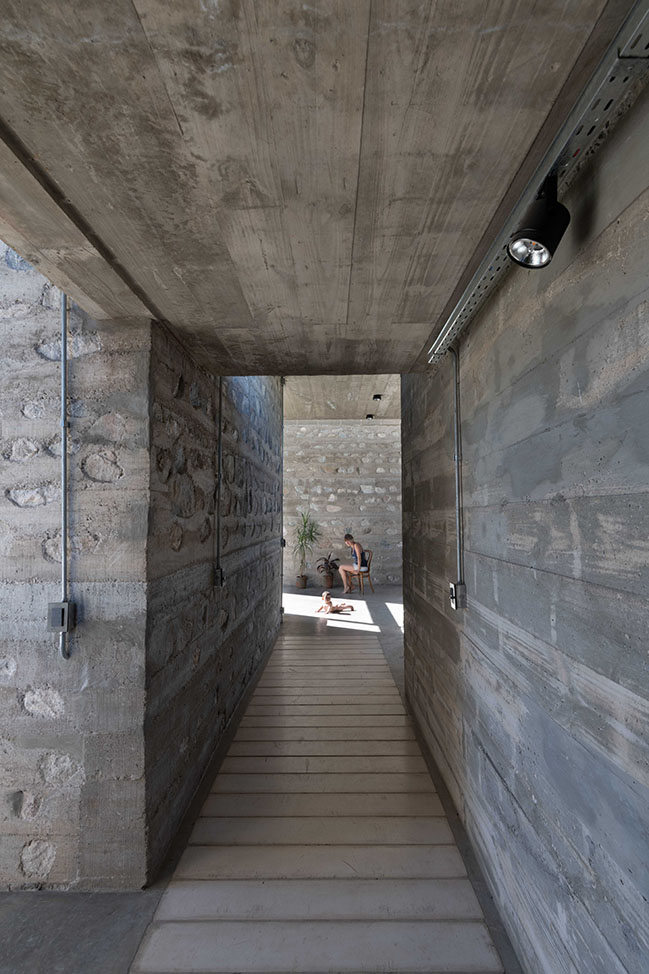
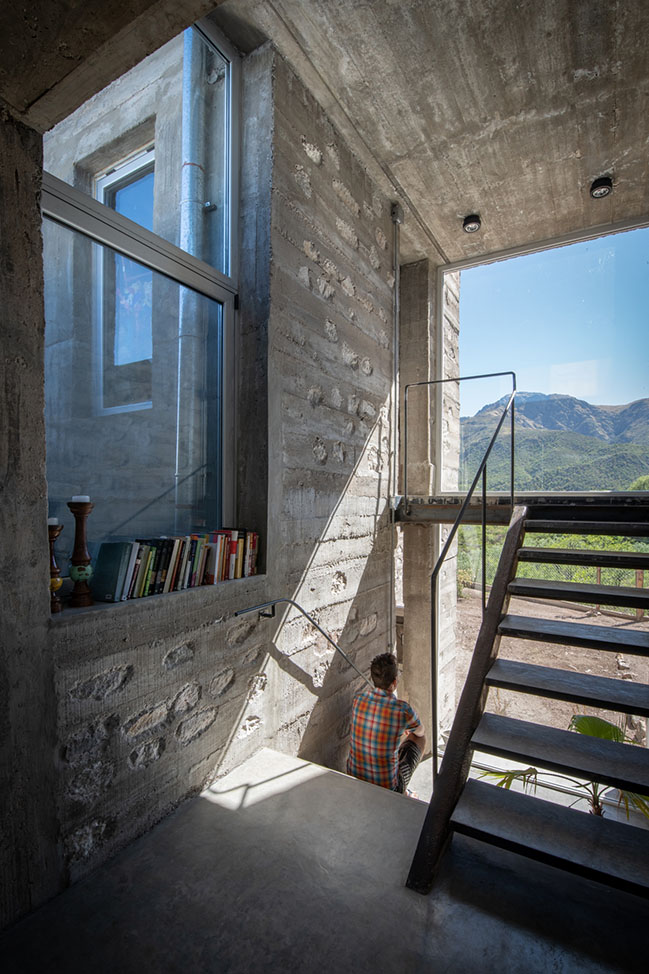
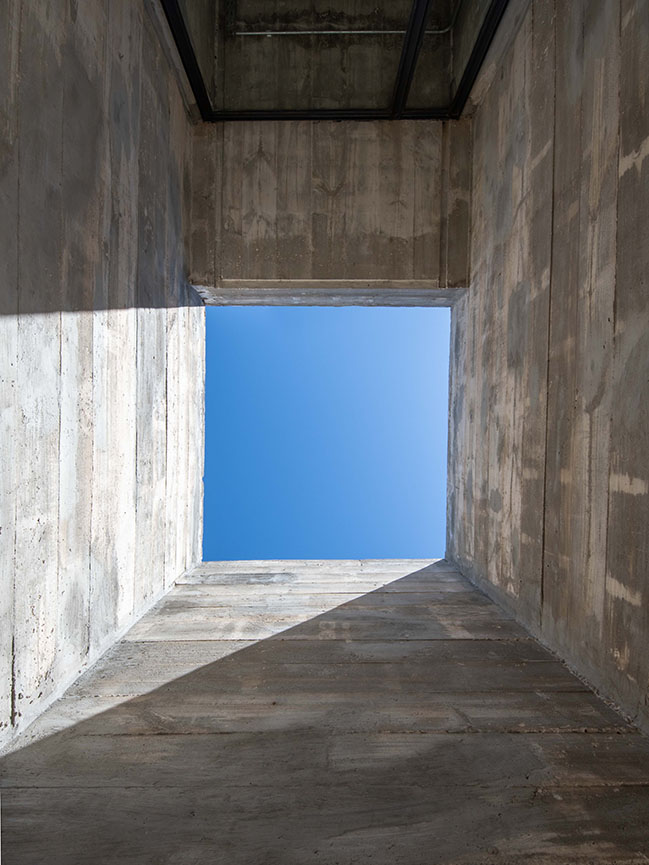
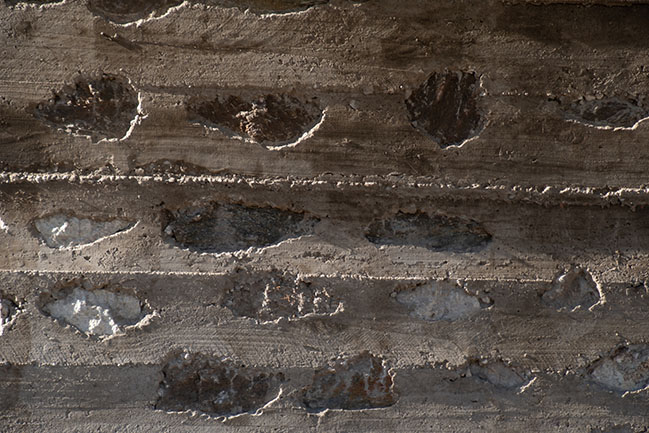
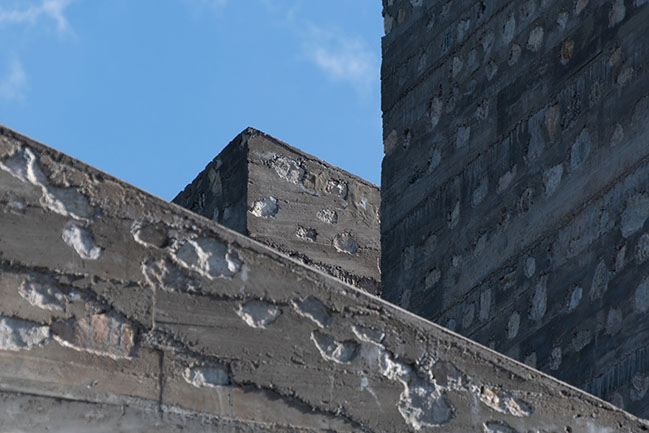
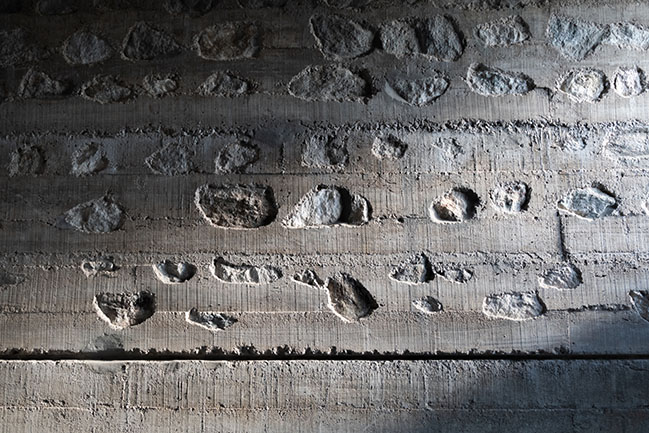
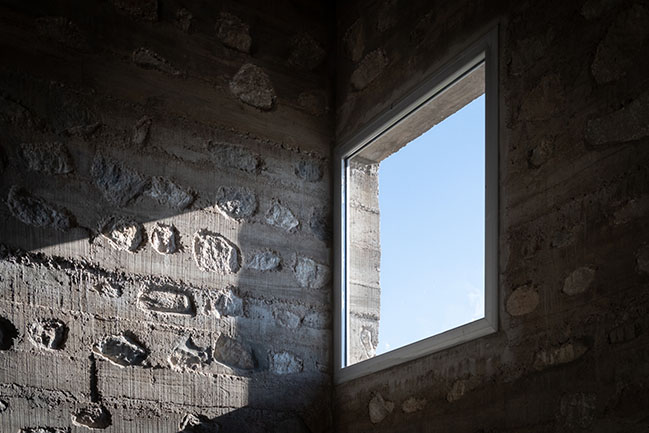
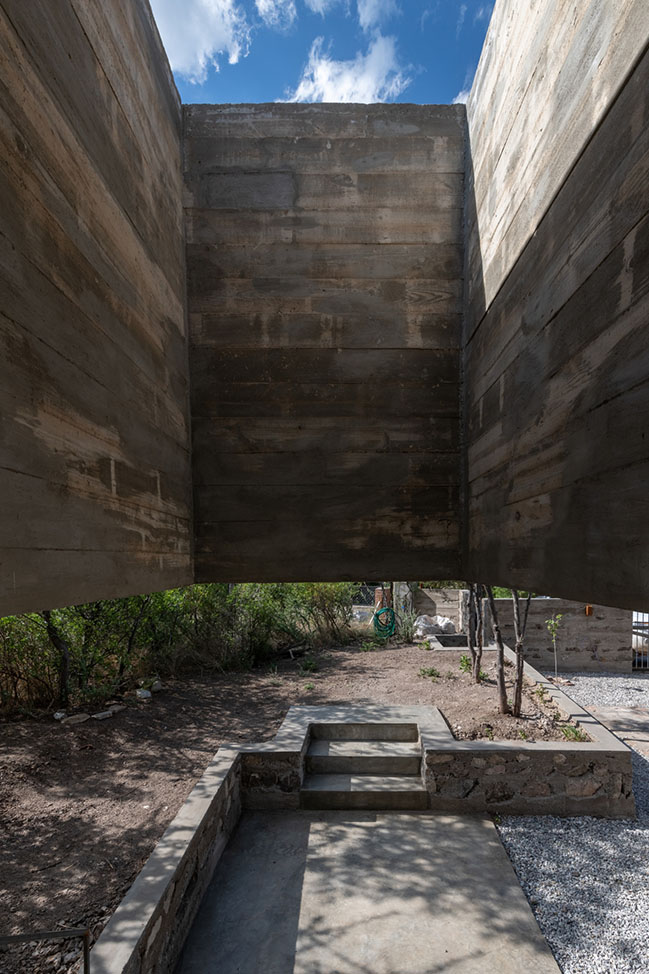
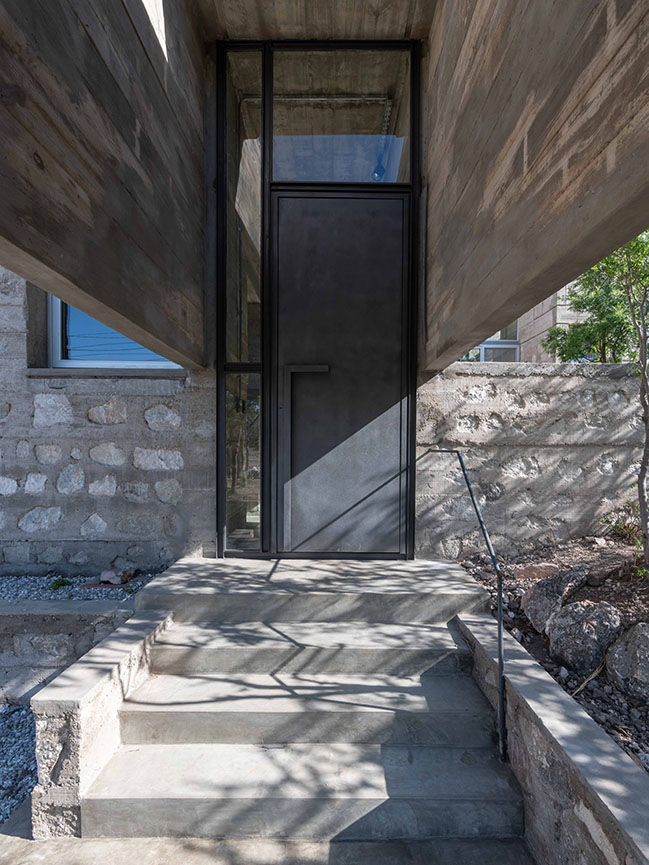
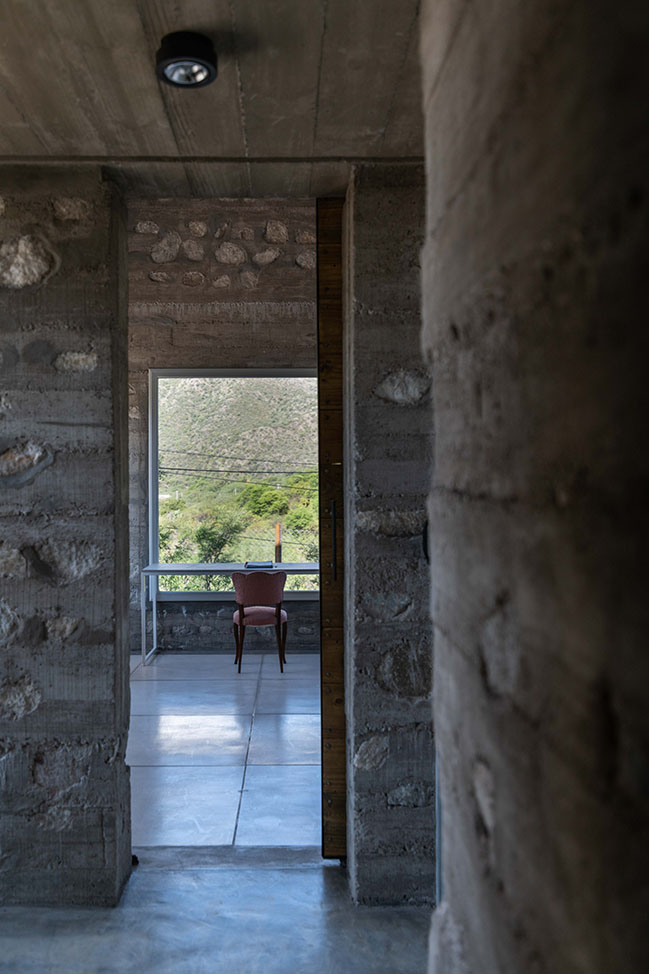
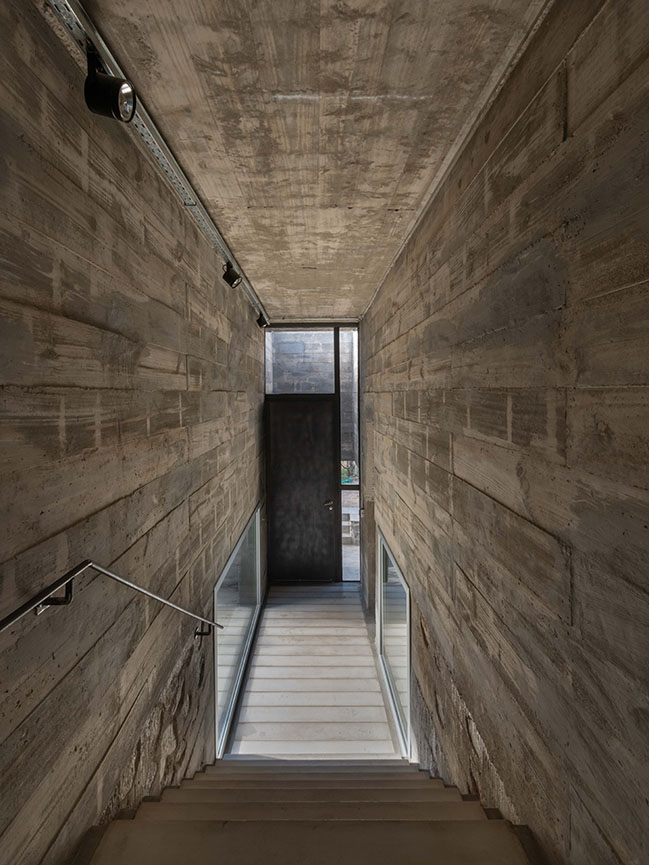
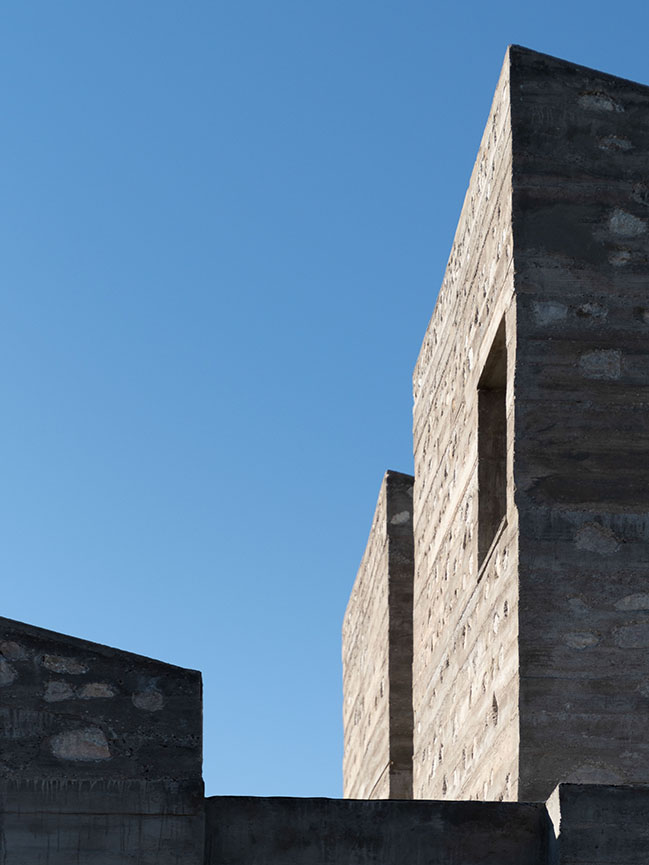
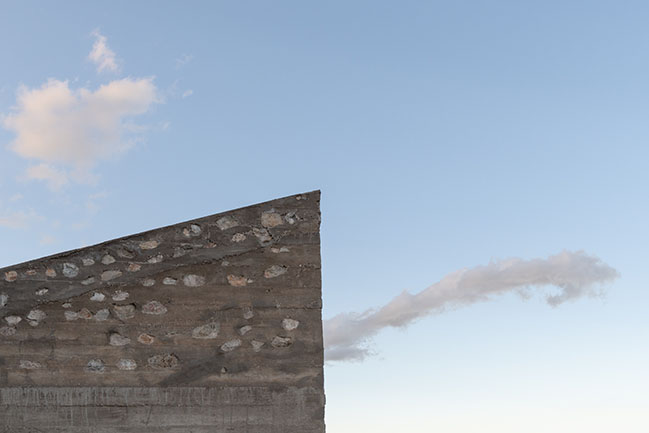
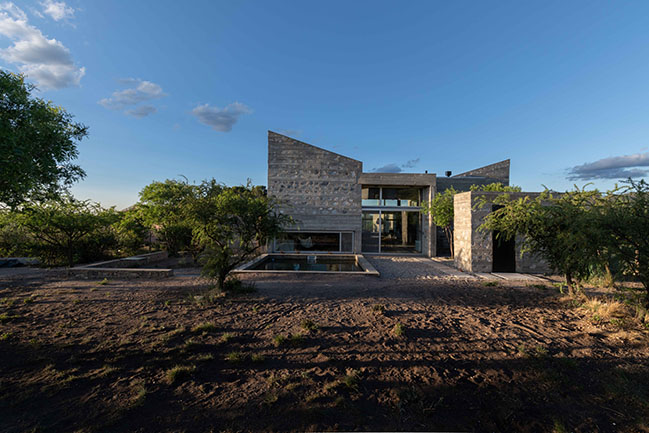
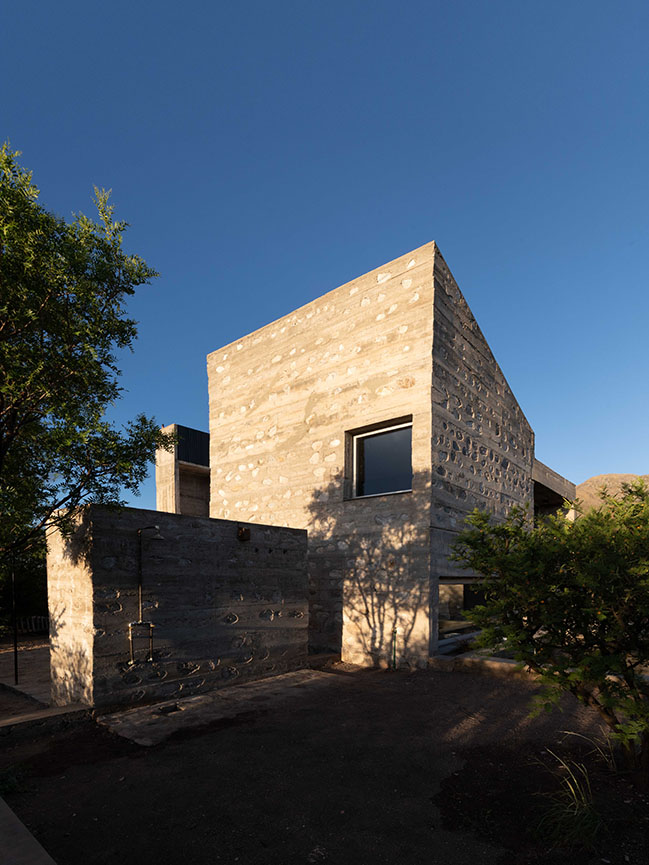
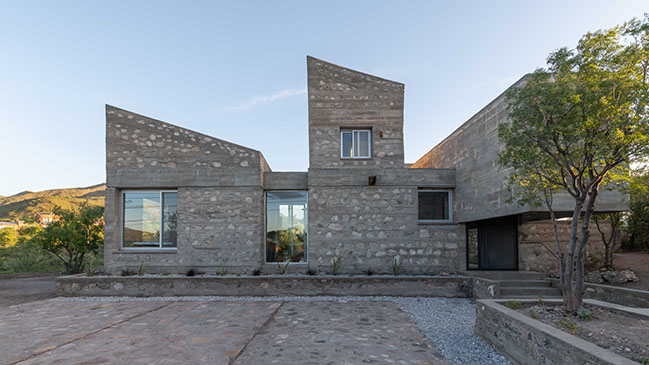
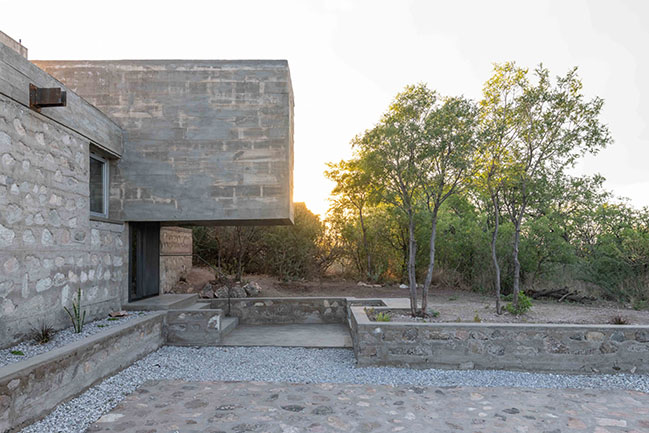
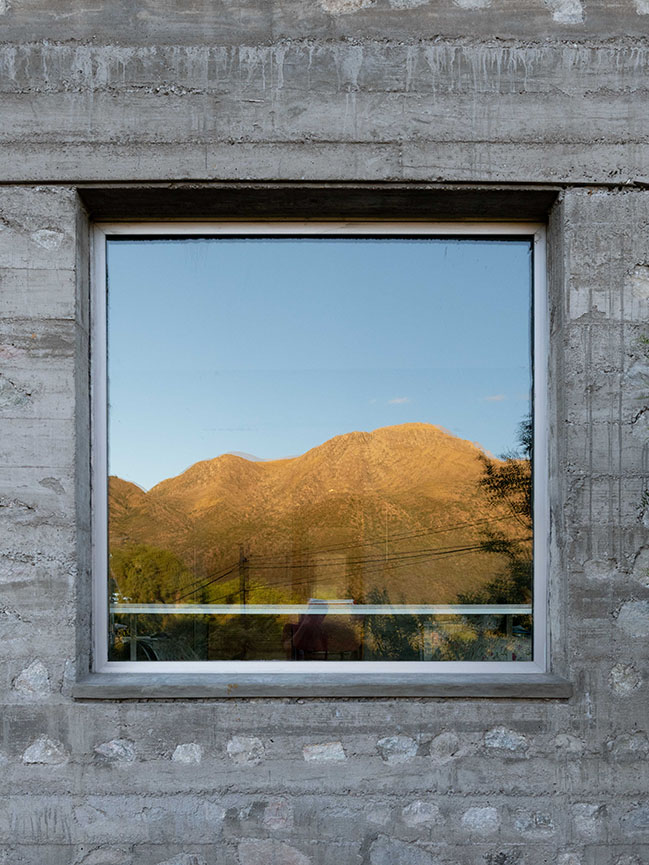
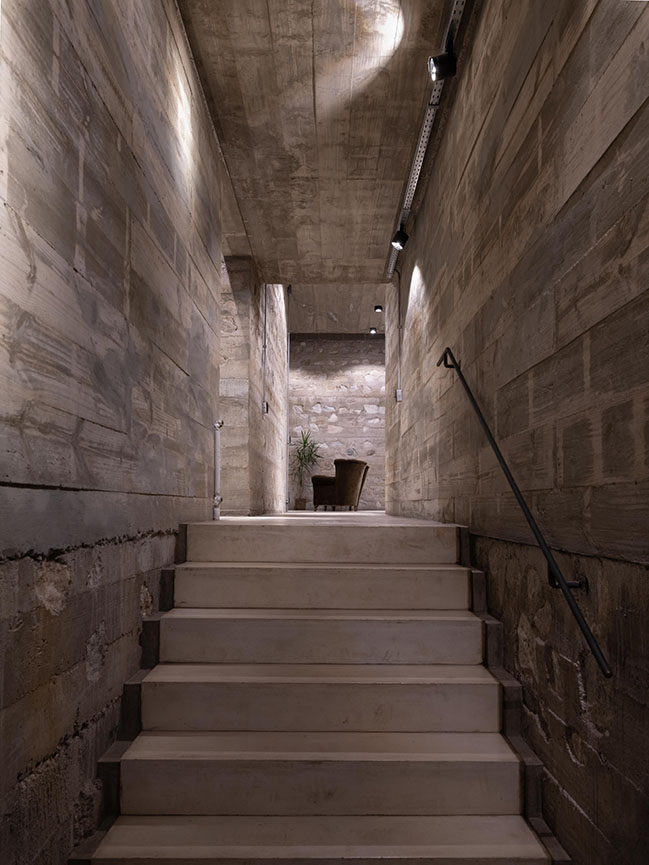
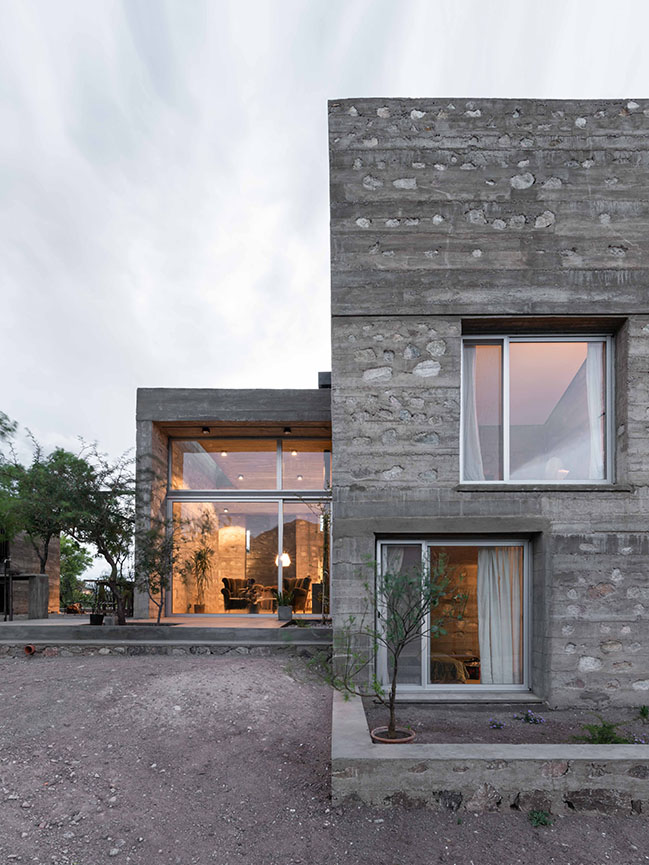
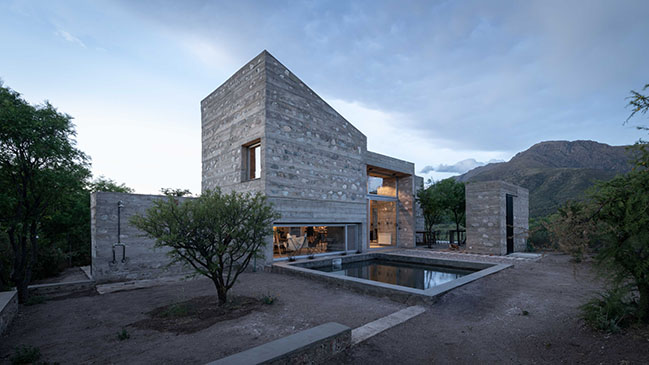
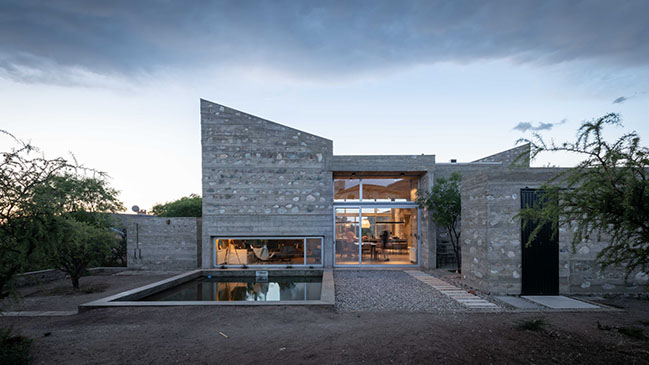

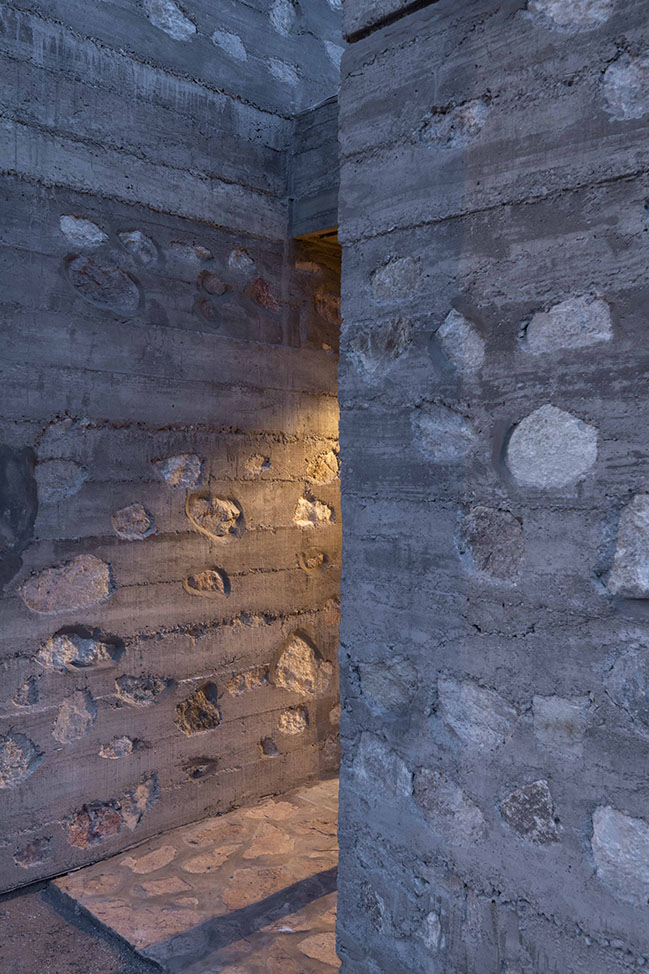
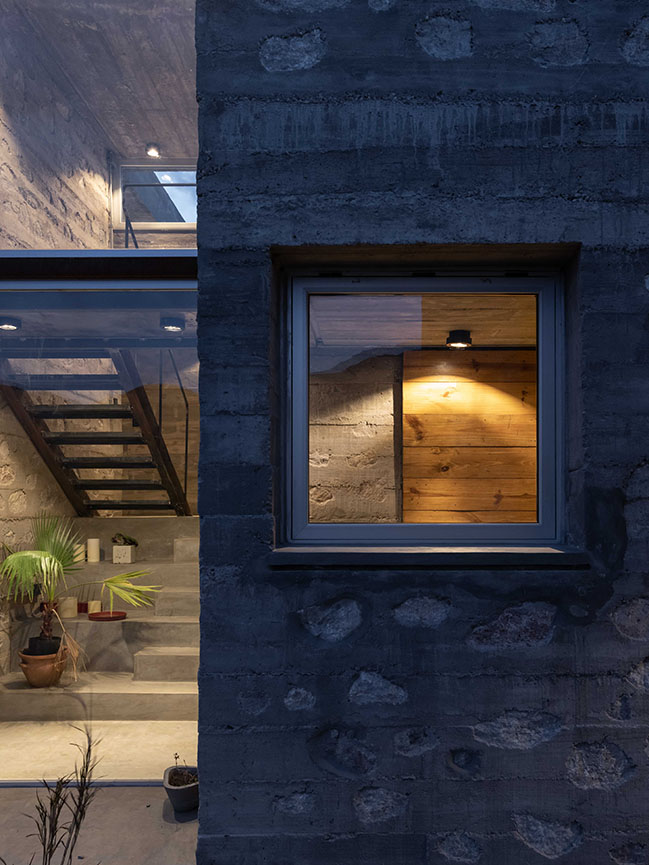
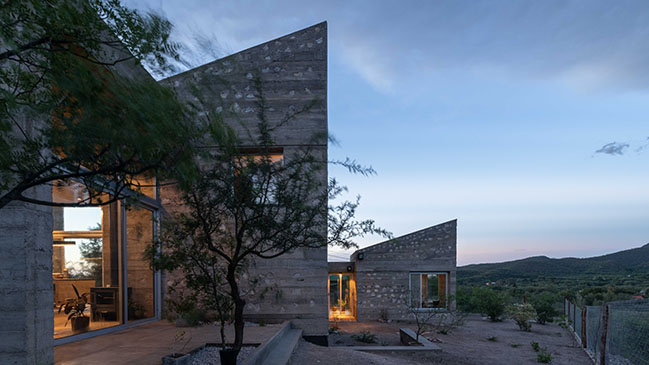
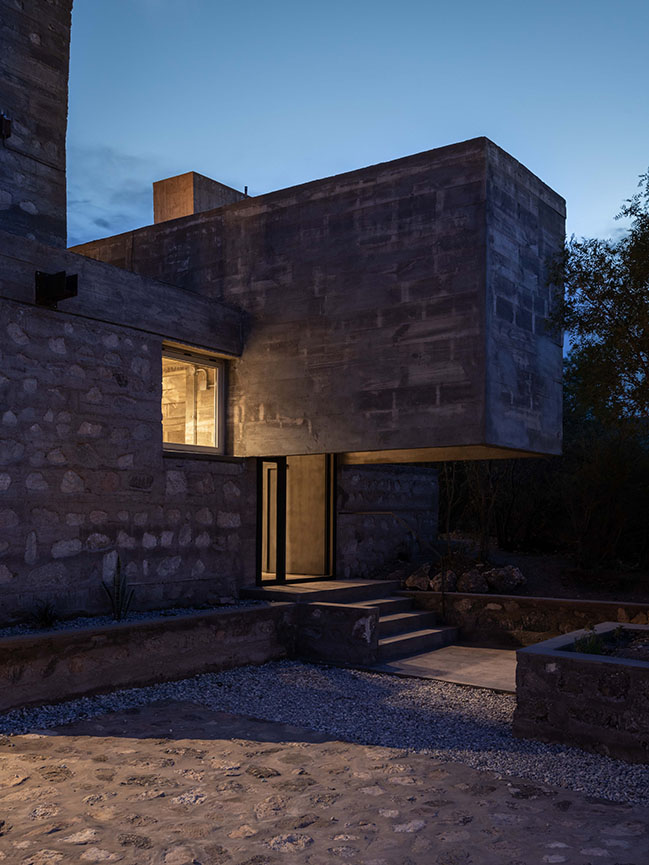
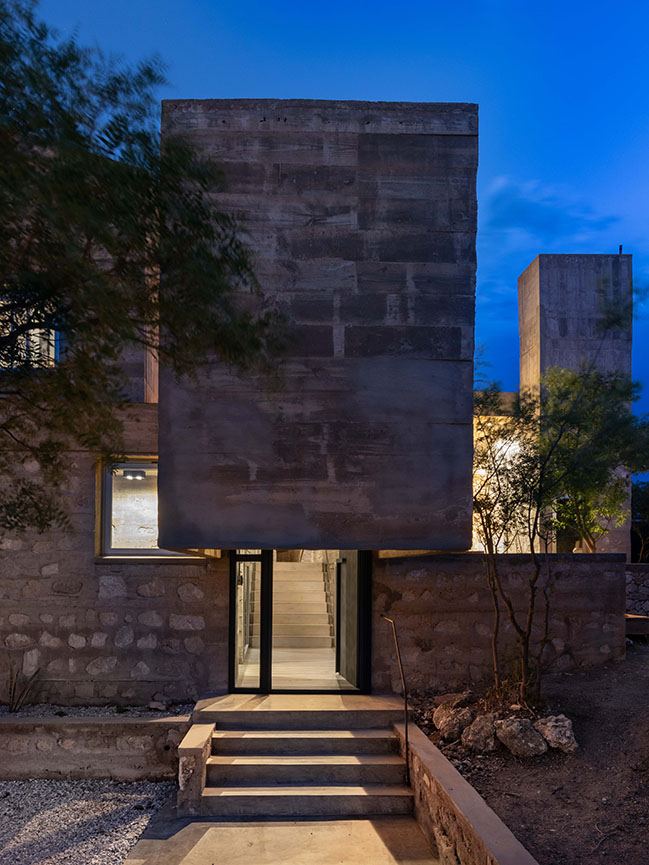
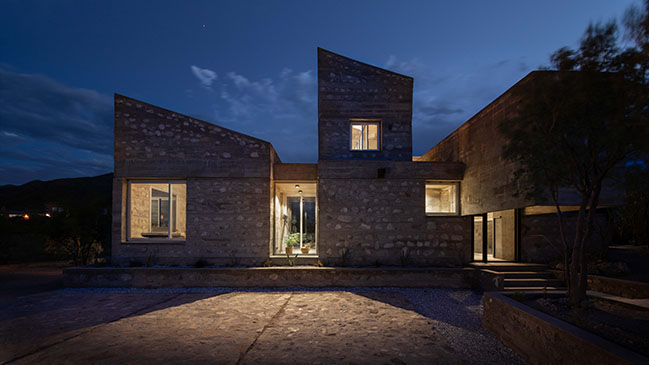
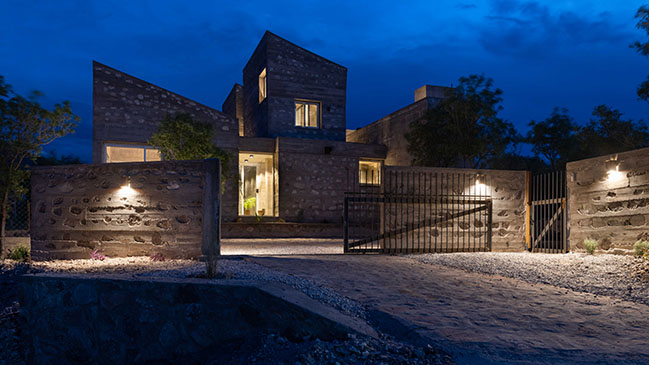
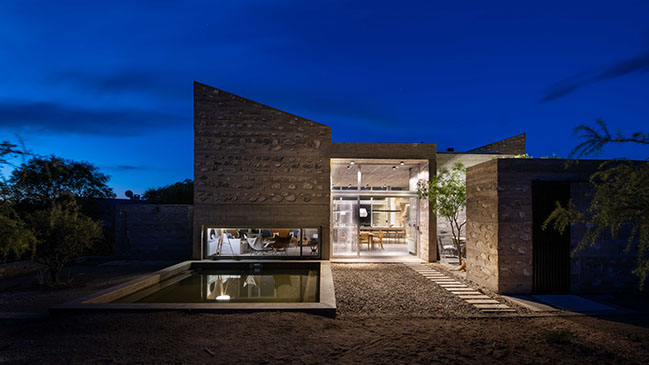
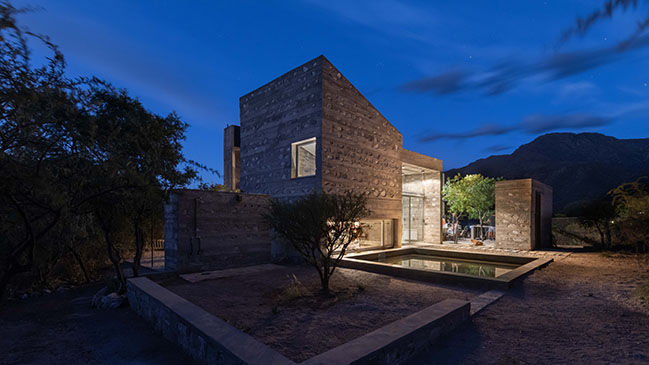

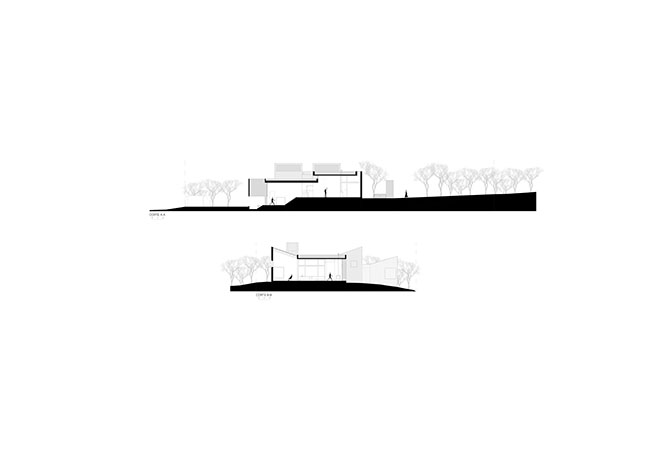
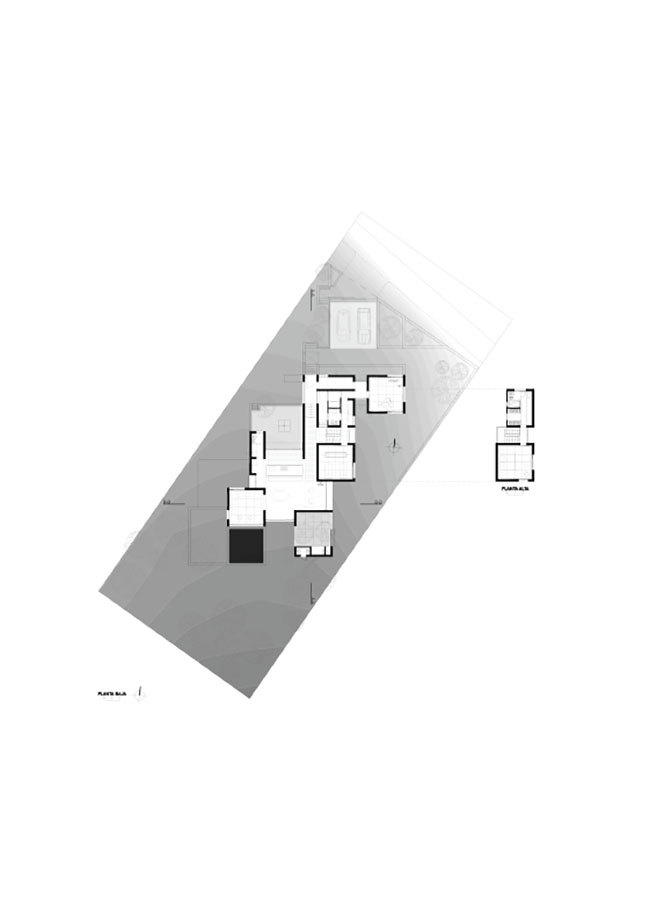
House DP in the mountain by Nanzer+Vitas
12 / 02 / 2021 The house is conceived as a concrete and stone promontory emerging from the hill, a wall-divided house, that emerges from the organization and repetition of volumes of identical dimensions on floor, 5 x 5 metres...
You might also like:
Recommended post: Mullet House in Vancouver by RUFproject
